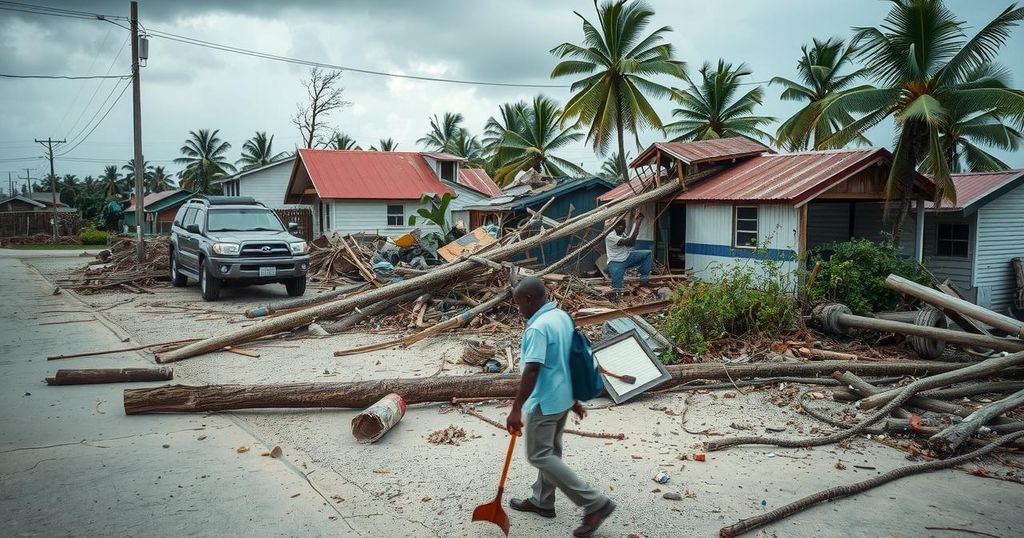Tropical Cyclone Chido: Urgent Response Required as Landfall in Mozambique Occurs

Tropical Cyclone Chido made landfall in Cabo Delgado, Mozambique, on December 15, 2024, threatening approximately two million people. Of these, 627,000 are considered at high risk. The cyclone’s impact necessitates immediate action, prompting early evacuation measures and the provision of emergency food assistance to affected families. Multi-sectoral assessments are set to follow to gauge the disaster’s scope.
On December 15, 2024, Tropical Cyclone Chido made landfall in the district of Mecufi, located in Cabo Delgado province, Mozambique. The cyclone poses a significant threat to an estimated two million individuals, with 627,000 classified at high risk and 1.4 million at moderate risk. In light of the potential devastation, government meteorological reports emphasize the danger to river basins, transportation routes, electrical infrastructure, and health facilities, highlighting the urgent need for preparedness and response measures.
The districts experiencing the highest levels of risk include Mecufi, Chiure, Metuge, Pemba, Namuno, Montepuez, and Ancuabe in Cabo Delgado, as well as Memba, Nacaroa, and Erati in the neighboring Nampula province. To mitigate the impact of the cyclone, early warning messages and voluntary evacuation directives commenced on December 8 in Nampula and December 12 in Pemba, successfully reaching over 400,000 residents in the affected areas through the Anticipatory Action Plan.
As a rapid response initiative, the World Food Programme (WFP) has successfully delivered emergency food assistance to approximately 500 families who are temporarily accommodated in shelters in Pemba. Additionally, in Mogincual, Nampula, food provisions have been made available in temporary accommodation sites as part of the Anticipatory Action activation supported by the National Institute for Disaster Management (INGD) and the WFP. Comprehensive multi-sectoral assessments are planned for the districts of Mecufi and Chiure to further evaluate the extent of the damage and inform ongoing relief efforts.
The report emanates from the ongoing humanitarian disaster management and emergency response initiatives in Mozambique, specifically focused on the imminent threats posed by natural disasters such as tropical cyclones. Mozambique is located in a region susceptible to climatic extremes and severe weather conditions, necessitating robust preparedness and rapid response strategies to mitigate the impact on vulnerable populations. Cyclone Chido is a part of this broader context, revealing the challenges faced by the government and humanitarian organizations in safeguarding the well-being of millions.
In summary, Tropical Cyclone Chido has emerged as a serious threat to millions in Mozambique, particularly affecting Cabo Delgado and Nampula provinces. With high-risk populations identified and urgent response measures underway, including food assistance and preparations for possible evacuations, it is crucial for continuing assessments and aid to be promptly executed. The collective actions of governmental and humanitarian agencies underscore the commitment to support affected communities during this challenging time.
Original Source: reliefweb.int






